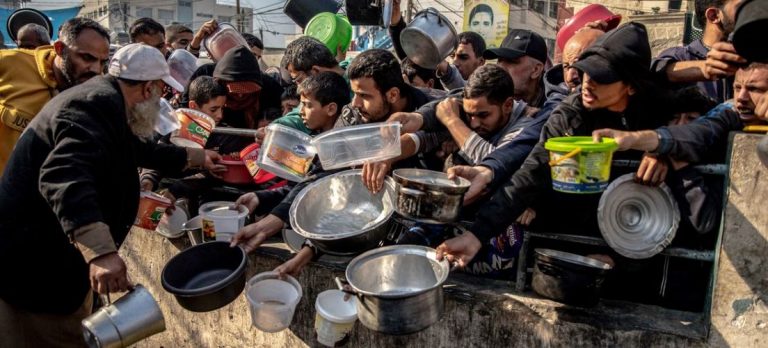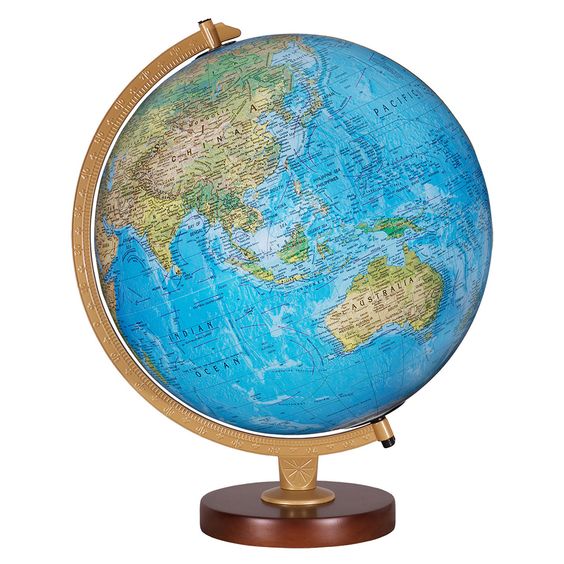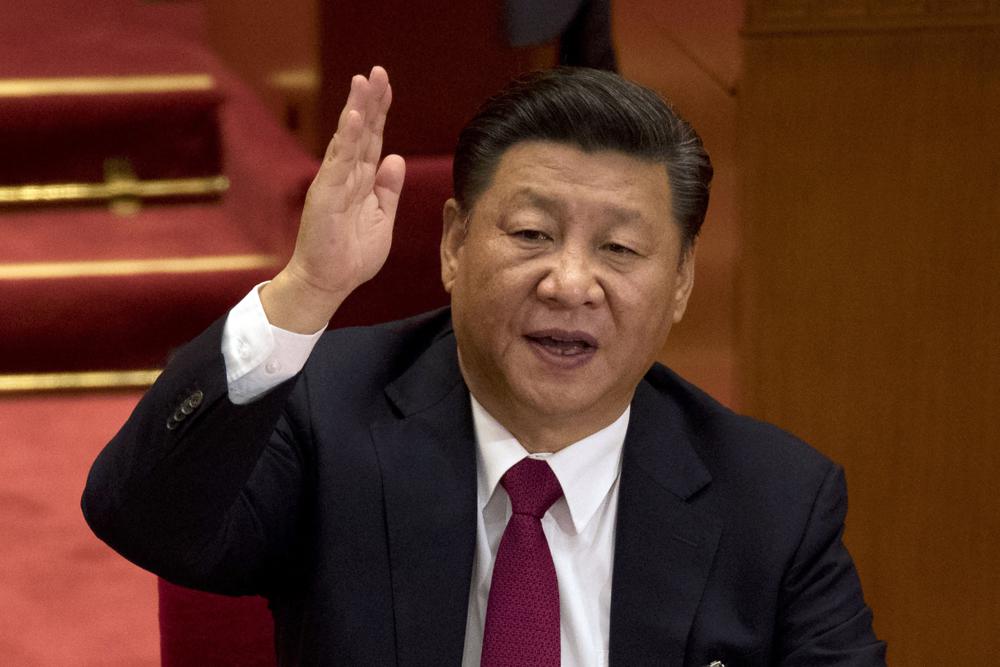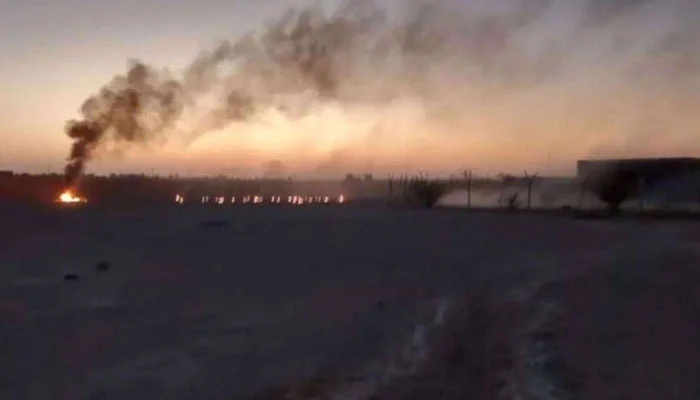
War is the biggest driver of famine. When the fighting starts the farming stops
By Tom Arms
The world is suffering one of its worst post-war food crises.
Before the Hamas attack on October 7, some 333 million people in the 78 countries covered by the World Food Program were suffering what food gurus call “acute levels of food insecurity.”
The WFP’s latest figures do not cover the 26 million North Koreans, half of whom are said to be suffering from malnutrition.
Neither do they include Gaza where 2.2 million people are literally starving to death. Another 129,000 are facing a thin coffin in an early grave in Mali, Burkina Faso, Somalia, and Sudan.
Feeding these people. Providing them with the means to feed themselves, is not just the right moral thing to do. It is in the interests of the developed world.
The starving millions are driven by the survival instinct to walk, fly, or even sail across the sea in rubber dinghies to countries that don’t want them but can feed them.
The problem is that the situation is likely to become much, much worse, and there is little prospect of getting any better.
Also read: Hundreds of thousands are starving in Gaza as famine arrives at ‘incredible speed,’ UN aid chief warns
The rising food prices which have struck the developed world’s households are also hitting aid agencies budgets, and low growth in the developed world means lower tax revenues and less money for food aid.
The WFP budget last year was $14.1 billion. They will be lucky to raise the same amount this year, and the WFP has several million more mouths to feed.
The problems are further compounded by a shortage of fertilizer caused by the Ukraine War. Three of the biggest fertilizer-producing countries are Russia, Ukraine and Belarus. The cost of agricultural fertilizer has rocketed to a ten-year high.
In the first 18 months or so of the Ukraine War the drop in fertilizer volumes had little effect on crop yields because of the time lag caused by the growing season and fertilizer storage capacity.
But the impact will be felt this spring as farmers are unable to spread adequate muck on hungry crops such as soya, rice, maize, soybeans and wheat—the major foodstuffs.
War is the biggest driver of famine. When the fighting starts the farming stops. The ground is churned by tank treads and exploding landmines rather than productively ploughed for arable crops.
There is no end in sight to the fighting in Ukraine. Or for that matter Gaza, Somalia, Mali, Sudan, Burkina Faso…. All those places are guaranteed to continue to generate empty stomachs and desperate immigrants.
 World Review
World Review
Surprise, Surprise, Benjamin Netanyahu is opposed to the two-state solution.
The Israeli Prime Minister has never made any secret that he believes that the only guarantee of Israeli security is Israeli control of Palestinian security. On Thursday he reiterated his position.
Any Palestinian state, Netanyahu argues, would be dedicated to the overthrow of the Israeli state. And even if they publicly committed themselves to peace, Netanyahu wouldn’t believe them.
The primary responsibility of every country is defense. Ipso facto, there can be no Palestinian state—according to Netanyahu.
Most of the rest of the world believes that there are basically three possible outcomes to the Arab-Israeli Crisis: The Israelis wipe out the Palestinians. The Palestinians wipe out the Israelis. Or the two sides somehow work out a modus operandi that allows the two groups to live side by side in peace.
The Biden Administration was hopeful that the experience of Gaza would show that the only long-term opportunity for peace is a political solution which involves a Palestinian state.
But Netanyahu appears unfazed by Gaza. He told a press conference this week that Israel must have security control over all land west of the River Jordan, which would include the territory of any future Palestinian state.
“This is a necessary condition, and it conflicts with the idea of (Palestinian) sovereignty. What to do? I tell this truth to our American friends, and I also told them to stop the attempt to impose a reality on us that would harm Israel’s security.”
John Kirby, the US National Security Adviser, replied: “Israel and the US see things differently.”
Donald Trump, on the other hand, sees the Middle East very much through Bibi eyes. His Abraham Accords were designed to circumvent the Palestinians and the two-state solution. Netanyahu’s continued intransigence could—at least in part—reflect his hope for a Trump victory in the November presidential elections.
Iowa was a Trump landslide. Or was it? Only 15 percent of the state’s 718,000 registered Republicans voted—the lowest turnout in years.
Why? There is no certain answer but here are a few possibles, starting with the MAGA camp: The weather was atrocious. Nobody in their right mind would risk leaving home to caucus in the sub-Arctic temperatures.
Also, the media named Trump the big margin winner before the caucusing started. Why bother risking frostbite to vote for one of the losers or even for the winner? Best stay warm.
Now, for the non-MAGA Republican perspective: We don’t want Trump, but none of the others can win, so why risk hypothermia for a wasted vote?
Everyone is an individual, even in Iowa. So chances are that there are 69,000 reasons why 85 percent of the state’s Republicans failed to caucus. But if that figure is extrapolated across America—then Trump is in trouble come the general election.
As any seasoned campaigner will tell you. The key to winning elections is to persuade as many as possible of your registered voters to get out and vote. Apathy can result in political disaster.
***
Conspicuous by its near silence in the aftermath of the Taiwanese elections is the voice of Chinese President Xi-jingping.
To briefly re-cap, the Chinese leader was loud in his election support for the Kuomintang but and condemnation for the incumbent Democratic People’s Party. This is because the KMT favored closer relations with Mainland China based on the 1992 “one country two systems” concept. The DPP, on the other hand, is moving Taiwan closer to a quasi-sovereign independent state.

The DPP’s William Lai won the presidency, although the party has lost its majority in the Chinese parliament.
The US is in two-minds about the result. They want Taiwan in the democratic capitalist camp. But not necessarily as a sovereign Taiwan. This could provoke Beijing into a military solution which would drag in America’s Pacific-based Seventh Fleet.
So the State Department issued a rather anodyne statement which welcomed the fact that Taiwan held democratic elections, without focusing on the possible repercussions. Statements from Japan, the EU and NATO countries followed suit.
Beijing was, if anything, more anodyne, it has said virtually nothing about the election result itself. Instead it focused on the statements from the Western countries and basically said they had no right to make any comment because Taiwan is part of China. The diplomatic conversation then ended.
There could be lots of reasons for the Chinese not to take the argument further. There is no point. Xi is busy purging his military and party structures. The Chinese economy is sluggish. Or, he could be waiting for a Trump victory in November.
***
Is honor now satisfied in the Iran-Pakistan tit for that missile exchanges?
The first blow was delivered by Iran against an Iranian terrorist group near Panjgur Baluchostan called Jaish-al-Adl. Two children and a number others were seriously injured. Pakistan’s ambassador to Iran was recalled and the Iranian ambassador, who was visiting Tehran, was told not to return.
A few days later Pakistan retaliated with a strike against an anti-Pakistan terrorist group which they called Sarmachas. Nine people died. The Pakistanis claimed that the attack was designed to deter “a large-scale terrorist attack” from Iran.

Also read: Pakistan conducts ‘precision military strikes’ in Iran
There is a long 565-mile border between the two countries. Some of the inhospitable terrain on other side is used as bases for attacks both countries. The difficulties involved in policing the region provides a reasonably safe haven for terrorist groups.
Iranian-Pakistan relations have see-sawed over the years, but the biggest bones of contention have been attitudes towards Afghanistan and religious divisions. Pakistan has supported the Sunni Taliban while Iran backs Afghanistan’s Shia tribes.
The situation is complicated by a Balochistan Liberation Army which wants to hive off bits of Iran, Pakistan and southern Afghanistan to form their own state. They end up fighting everyone, including Jaish al-Adi.
Also read: Pakistan recalls its ambassador from Iran after airstrikes
There is the additional problem that both Iran and Pakistan have enough security problems elsewhere. Pakistan has tricky situations in Afghanistan, Kashmir, and of course in its relations with India. Iran is deeply embroiled in the wider Middle East problems with its support for the Houthis, Hamas and Hezbollah. Neither needs another security headache.
Which could explain why Pakistan followed its missile attack with an olive branch. The foreign ministry said: “Pakistan fully respects the sovereignty and territorial integrity of Iran. The sole objective of today’s act was in pursuit of Pakistan’s own security and national interest which is paramount and cannot be compromised.”
In the meantime, China, the only country which has close relations with both Iran and Pakistan has offered to mediate, thus giving Beijing an opportunity to widen its Middle East footprint.
***
Individual European countries refuse to give up on Ukraine. American Republicans are holding up $61 billion in aid and Hungary’s Viktor Orban is blocking European Commission help worth $76 billion.
But Orban’s veto does not stop individual European countries from acting independently.
The Baltic States are in the frontline both literally and financially. Tiny Estonia has just pledged $1.3 billion in aid and increased its defense budget to three percent of GDP.
Britain’s Rishi Sunak recently flew into Kyiv to pledge another $3.2 billion and to offer help in beefing up Ukraine’s drone production industry.
French President Emmanuel Macron is expected to visit Ukraine month with a pledge to provide long-range French SCALP missiles. Germany is doubling its aid to $9 billion.
In the meantime, the situation on the ground is stalemate. Russia appears to have replaced the soldiers it lost last year with 426,000 fresh conscripts. But there is no sign that either the Russians or Ukrainians are making a serious dent into the complex network of defences that separate the Russian-held Donbass Region from the rest of Ukraine.
Both sides appear to preparing for the long-term, and so is Europe. Thierry Breton, said this week that he would in February propose a $100 billion defense investment program. The aim would be to expand European defense industries to enable them to produce the weapons that Ukraine needs.
_________________________
 Tom Arms is Foreign Editor of Liberal Democrat Voice. He is currently updating his “Encyclopaedia of the Cold War” and is the author of “America Made in Britain” which is available in paperback next month. Tom Arms also co-hosts the podcast “TransAtlantic Riff”
Tom Arms is Foreign Editor of Liberal Democrat Voice. He is currently updating his “Encyclopaedia of the Cold War” and is the author of “America Made in Britain” which is available in paperback next month. Tom Arms also co-hosts the podcast “TransAtlantic Riff”
https://open.spotify.com/show/3ntjretAKNLZNFpA5ZEGDG
[…] Read previous blog: Observations of an Expat: Famine […]